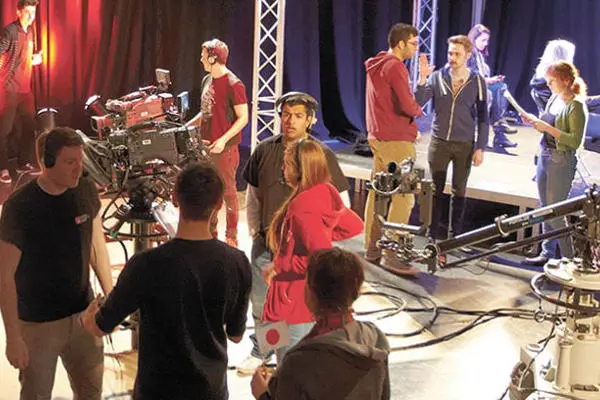
All the course lecturers were immediately friendly, welcoming and honest about their own careers and how they could help us. They had all worked – or still did work – in the industry, and their willingness to answer questions about their respective fields was always appreciated.
They sent out weekly emails with work experience opportunities and potential jobs from alumni or fellow industry leaders. They organised regular guest lectures with big-hitters such as Matt Le Tissier, and understood exactly how to transfer the skills we were learning into the ‘real world’.
Every core aspect of journalism was covered - writing long-form features, writing press releases and news stories, filming and editing both video and audio, podcasting, reading bulletins; you really felt like you had all the necessary skills upon graduating.


You never know who you're impressing at any point in time! If you're in a room for a job interview, or you're meeting someone, or you're going for a screen test … always be on your best game! Even if you don't get a role, you might have impressed someone in that room, and that will lead to jobs in the future.
The facilities were fantastic, and from what I see when I go back to Solent, they’re getting better year on year. There are multiple professional studios for radio and TV - including industry-standard television galleries - it makes you feel like you are already in the industry and working towards your goals. If you want to become a DJ or a radio presenter, there is literally no better experience than to get into the studio, learn how it feels to sit behind a mic, and edit your own work.
In my third year we started News Days, which are now a regular portion of the course for all years. We would put together hourly radio packages or TV segments, write scripts, book guests and film across the day as if we were working in a professional newsroom. The pressure was high; the deadlines and environments in which we were recording (studios, filming the general public, etc) mirrored what you do in the industry.
I recall presenting a short video sports show in the newsroom in front of everyone. It was really exciting; now that I am working in TV I always think back to that moment as being the one where I thought, ‘this is cool, this is what I want to feel more often’.
In our final year, an opportunity came up for us to start producing video content for Hampshire Cricket Club. Our group of three began travelling to the Ageas Bowl every week to film, interview players and present to camera for a small show that would air on their official website. It was a great gig and we were getting paid for it, an added bonus.
It felt like the hard work had paid off because something we were ‘just’ doing for a university project became actual work; this showed me that university work directly affected getting a job.











